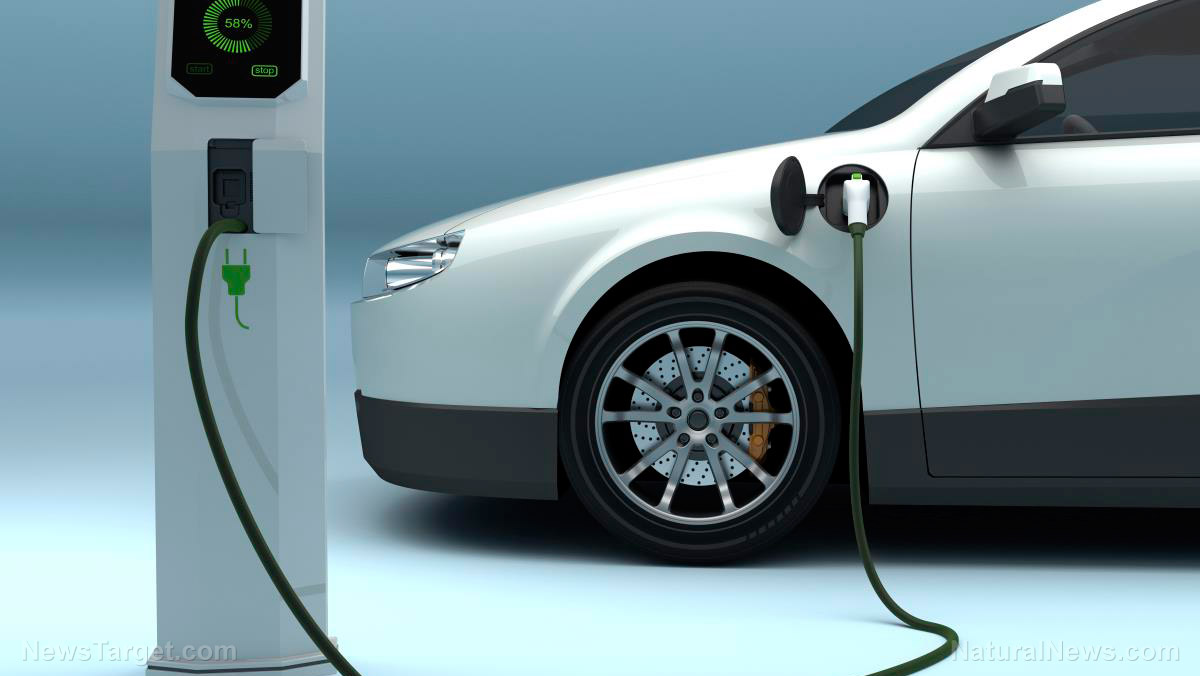
A new report has revealed that plug-in hybrid electric vehicles (PHEVs) produce much more greenhouse gases than their manufacturers claim.
A progress report by the Climate Change Committee (CCC), an independent public body in the United Kingdom, said that PHEVs produce up to five times more greenhouse gases than expected. PHEVs combine a traditional combustion engine with a battery and electric motors.
Chris Stark, the CEO of the CCC, stated that achieving net-zero targets is "worryingly slow." He even criticized the heavy reliance of the government on carbon capture instead of asking people to "reduce their high-carbon activities."
Stark noted that the contribution of the transportation sector to overall emissions, known as the "carbon budget," is higher than anticipated. He revealed that the government now expects surface transport emissions to exceed the levels outlined in the net-zero strategy by the mid-2030s. (Related: Bombshell science study shows that electric cars are DIRTIER for the planet than diesel vehicles.)
Furthermore, Stark said the latest data shows that carbon savings from plug-in hybrid cars are lower than expected. The actual carbon savings are three to five times lower than the initial assumptions. This revelation questioned the environmental effectiveness of PHEVs and their contribution to the overall emission reduction goals.
Real-world performance of PHEVs exceeds advertised emissions
In a similar study, the think tank Transport & Environment organization, in collaboration with the Graz University of Technology in Austria, conducted tests proving that the latest PHEV models, including the BMW 3 Series 330e xDrive, Peugeot 308 Hybrid 225 and Renault Megane E-TECH Plug-in Hybrid 160, emit at least three times more carbon dioxide than advertised when batteries are fully charged.
The same tests revealed that these vehicles could emit up to seven times their advertised carbon dioxide outputs when running solely on combustion engines during typical city commutes.
This is not the first time concerns about PHEVs' emissions have been raised. Two years ago, Transport & Environment found that these vehicles emitted more CO2 than advertised on longer routes. The recent review has exposed their failure to meet emissions targets even on shorter commuter routes.
The study measured the emissions and electric-only driving range of the three tested models. The BMW 3 Series emitted more than three times its official rating on a typical commuter route, with CO2 emissions of 112g/km compared to the official rating of 36g/km. The Peugeot 308 and Renault Megane PHEVs performed better but emitted 20 percent, and 70 percent more CO2 than officially claimed.
Additionally, the study found that the electric-only driving ranges of the tested vehicles fell short of official figures. The Peugeot PHEV achieved only 20.9 miles in electric mode compared to the claimed 39.1 miles, while the BMW managed 25.6 miles instead of 34.8 miles. The Renault had an electric range of 31 miles, meeting the official claim but potentially falling short for many commuters.
Richard Hebditch, the director of Transport & Environment U.K., highlighted the difference between the advertised emission of PHEVs and their real-world performance. He said: "The truth is they pollute far more than advertised and are a dangerous distraction from full electrification. The government's plans to decarbonize driving must be based on the reality of their emissions, not on the industry's claims."
Follow RoboCars.news for more news about hybrid and electric vehicles.
Watch this clip from "The American Journal" on InfoWars as host Harrison Smith explains why electric vehicles are actually worse for the environment.
This video is from the InfoWars channel on Brighteon.com.
More related stories:
Consumer Reports poll: Gas-powered cars more reliable than EVs.
Electric vehicles have more quality issues than combustion engine cars, new study finds.
Contrary to what people believe, electric vehicles are not cheaper than gas-fueled vehicles.
Sources include:
Please contact us for more information.




















